National News Legal
On Nagpur doctor’s PIL, Supreme Court orders government to provide PPE to doctors, paramedics

The Supreme Court of India on Wednesday took cognisance of a PIL filed by Nagpur-based Dr Jerryl Banait and asked the centre to provide PPE (Personal Protective Equipment) and security to all doctors, paramedics and other health staff taking care of coronavirus affected patients in India. Similar PILs were also filed by Dr Arushi Jain and lawyer Amit Sahni.
In the matter of Dr Jerryl Banait Vs Union of India, the apex court issued directions urging the central and state governments to ensure the safety and well-being of doctors and healthcare workers.
The directions issued by the SC on basis of the PIL filed were:
? To ensure the availability of PPE to all heath workers including doctors, nurses, ward boys, other medical and paramedical professionals.
? To provide necessary Police security to the doctors and medical staff including those going out to collect samples.
? To take necessary actions against people who obstruct and commit any offence in respect to performance of duties by doctors, medical staff and other Government officials.
? To increase the production capacity of PPE and to ensure that protective equipment are domestically produced and impose necessary restrictions on their export.
Also read: COVID-19 tests at private labs across India should be made free, orders Supreme Court
Speaking about the reason behind filing the petition, Dr Jerryl told Nation Next: ?Before the lockdown, my elder brother Dr Yash Banait was posted at Terminal 2 of Chhatrapati Shivaji Maharaj International Airport. He was part of a 30-member team of doctors, who were screening the passengers for Coronavirus. My parents, and several my friends, who are doctors, treat patients regularly. I observed that my brother, my parents and my friends who are dealing with potential positive patients first hand lack necessary equipment to protect themselves from COVID-19. This compelled me to file the PIL.
Dr Jerryl added, If doctors and all health professionals are not protected, it can lead to a very catastrophic situation in the country. If doctors contract the virus, the patients he meets may contract the virus and also an absence of even one doctor may imbalance the working conditions of the staff.
Speaking about the ill-treatment received by doctors treating COVID-19 patients, Dr Jerryl said, People are mistreating doctors, who are coming out of their comfort zone to help coronavirus patients. It is simply not acceptable. There have been instances where doctors have been threatened and have been accused of spreading virus. Doctors are already struggling to keep their family safe. Doctors must be provided with facilities of isolation rooms so that they don’t have to come back to their families and risk spreading the virus. There must also be separate transportation facilities for them.
Legal
Karnataka High Court says wearing hijab non-essential practice in Islam; upholds ban
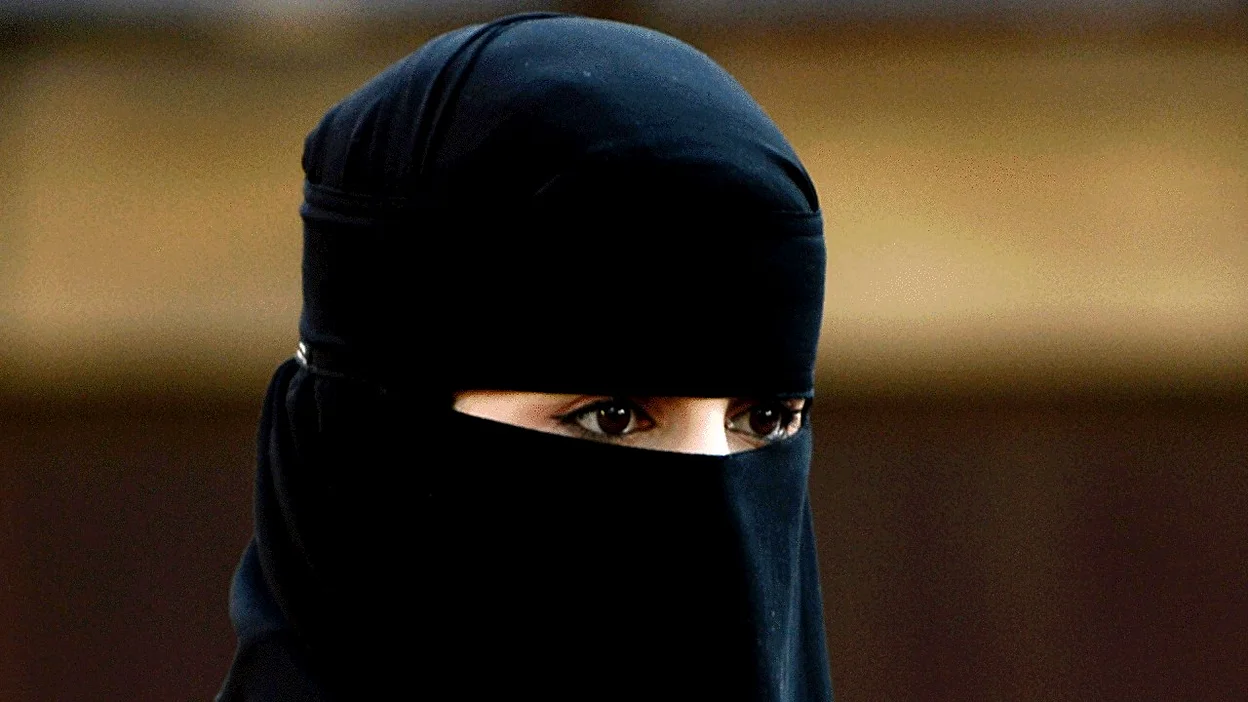
Representational image
The Karnataka High Court on Tuesday upheld hijab ban by dismissing petitions filed by a section of Muslim students from the Government Pre-University Girls College in Udupi seeking permission to wear hijab inside classrooms.
The court upheld the state government ban by saying, The prescription of school uniforms is a reasonable restriction.
The court further said hijab was not an essential religious practice in Islam. However, the petitioners are likely to challenge the ban in the Supreme Court.
“Met my clients in Hijab matter in Udupi. Moving to SC soon In sha Allah. These girls will In sha Allah continue their education while exercising their rights to wear Hijab. These girls have not lost hope in Courts and Constitution,” lawyer Anas Tanwir wrote in a tweet.
The court was answering three key questions on the controversy namely:
1. Whether wearing hijab is an essential religious practice in Islamic faith protected under Article 25?
2. Whether prescription of school uniform is violative of rights
3. Whether government order on February 5 was issued without application of mind and manifestly arbitrary?
A three judge bench comprising Chief Justice Ritu Raj Awasthi, Justice Krishna S Dixit and Justice JM Khazi delivered their verdict on the ongoing hijab controversy at 10.30 am today.
Ahead of the hijab row verdict, Section 144 was imposed in Bangalore and educational institutions remained closed.
Legal
SC grants bail to Rajiv Gandhi’s assassination convict AG Perarivalan jailed for 32 years

Rajiv Gandhi
The Supreme Court, on Wednesday afternoon, granted bail to AG Perarivala, one of the seven convicts in former Prime Minister Rajiv Gandhi assassination case.
However, the remission of his life imprisonment is pending before the President of India. AG Perarivala was serving life sentence and was jailed for almost 32 years.
Granting him bail, the court, in its order, said: Since Perarivalan has already undergone sentence for more than 30 years, we are of the considered view that he is entitled to bail in spite of the vehement opposition by the Additional Solicitor General Additional KM Nataraj.
Legal
Supreme Court to allow journalists inside courtrooms for physical hearing of cases

The Supreme Court of India, on Thursday, October 21, resumed hearing of cases and pleas in the physical mode for the first time since March 2020, when the COVID-19 pandemic broke out in India.
The Supreme Court has recently issued new SoPs for hybrid hearings as per which all cases on Wednesdays and Thursdays to be heard only in the physical presence of the counsels/parties in courtrooms.
Along with this, SC also decided to allow media persons inside the courtroom during the physical hearings. However, journalists would have to strictly adhere to COVID-19 related norms and protocols.
?With the physical hearing in the Supreme Court of India commencing tomorrow (Thursday, 21 October 2021), it has been decided to allow the media persons, subject to usual COVID restrictions, into the courtrooms for covering the proceedings,” said the top court in a press note.
Supreme Court heard cases through video conference since March last year due to the pandemic and several bar bodies and lawyers demanded that the physical hearings should be resumed immediately.
-
Health5 years ago
Amphoterecin B, used for treating black fungus, to now be manufactured in Nagpur
-
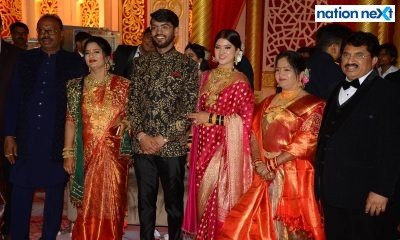
 Social4 years ago
Social4 years agoPoliticians, businessmen shower blessings on Chandrashekhar Bawankule’s son Sanket at his wedding reception
-
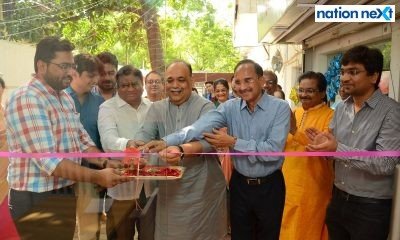
 Social4 years ago
Social4 years agoNagpur gets its first 7 am cafe ‘SEVEN O’ ELEVEN’ at Shraddhanand Peth
-

 Parties4 years ago
Parties4 years agoCouples have a blast, win awards at ‘Hollywood Oscar Night’ in Nagpur
-
Who´s Partying Next To You9 years ago
Nagpur brings in 2017 in style at Gondwana Club
-
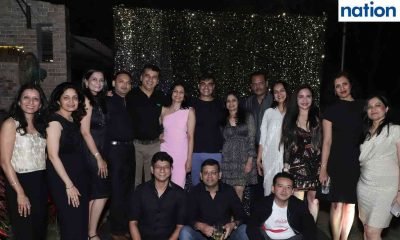
 Parties4 years ago
Parties4 years agoFamily, friends ‘wine n dine’ at Dr Shilpa Mukherji’s birthday bash in Nagpur
-
Who´s Partying Next To You8 years ago
Party revelers make noise at Nagpur’s first silent party on New Year Eve at Gondwana Club
-
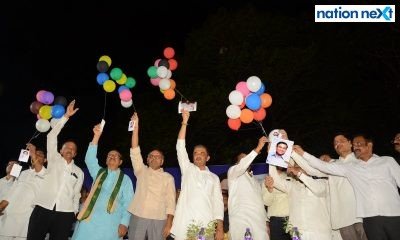
 Social4 years ago
Social4 years agoSunil Kedar kicks off 10-day Late Dr Shrikant Jichkar Memorial Cricket Tournament in Nagpur








